No products in the cart.
Sale
Kyotorphin | CAS 70904-56-2 | Neuroactive Dipeptide for Analgesic, Anti-Inflammatory, and Neurodegeneration Research
Original price was: $38.00.$34.00Current price is: $34.00.
Kyotorphin is an endogenous neuroactive dipeptide with potent analgesic, anti-inflammatory, and antimicrobial properties. It is widely utilized in research on neuroprotection, CNS modulation, and Alzheimer’s disease, providing insight into mechanisms of neurodegeneration and potential therapeutic strategies.
Description
Product Description
Kyotorphin (L-tyrosyl-L-arginine) is an endogenous neuroactive dipeptide initially identified in mammalian brain tissues, where it exerts potent analgesic and neuromodulatory effects. The peptide has been widely investigated for its role in central nervous system (CNS) function, neuroprotection, and neurodegenerative disease mechanisms, particularly Alzheimer’s Disease (AD). Its molecular activity involves both modulation of neurotransmitter release and regulation of intracellular signaling pathways linked to neuronal survival and inflammation.
Research has shown that Kyotorphin levels in cerebrospinal fluid negatively correlate with the progression of neurodegeneration in Alzheimer’s patients, suggesting a protective role in CNS homeostasis. Its analgesic activity is primarily mediated via interaction with opioid receptor pathways, enhancing endogenous met-enkephalin release, and reducing nociceptive signaling. Additionally, Kyotorphin demonstrates anti-inflammatory properties by downregulating pro-inflammatory cytokines and mitigating microglial activation in neuronal models.
Kyotorphin’s antimicrobial activity further underscores its role as a multifunctional peptide with relevance beyond the CNS. In vitro studies indicate its potential in modulating immune responses and protecting neural tissues from inflammatory and oxidative stress-induced damage. Researchers frequently employ Kyotorphin to investigate neuronal signaling cascades, neuroinflammation, and the interplay between neuropeptides and neurodegenerative processes.
Mechanistically, Kyotorphin interacts with neuronal membranes and intracellular targets to regulate calcium influx, synaptic vesicle release, and neurotransmitter cycling. These activities facilitate pain modulation, neuroprotection, and attenuation of neurodegenerative signaling. Its endogenous origin ensures compatibility with in vitro and in vivo experimental models, making it a valuable tool in both preclinical neuropharmacology and CNS-focused therapeutic research.
Kyotorphin is commonly applied in studies exploring analgesic peptides, anti-inflammatory pathways, Alzheimer’s disease pathophysiology, and other neurodegenerative disorders. By providing a molecular framework for understanding peptide-mediated CNS regulation, it enables researchers to design experiments assessing neuroprotective interventions, peptide therapy strategies, and combination approaches with other neuroactive compounds.
Its high specificity and low cytotoxicity in neuronal cultures ensure safe laboratory handling, while maintaining biologically relevant activity. The peptide’s pharmacodynamic properties allow for detailed studies of neuronal excitability, synaptic plasticity, and protective mechanisms against oxidative stress and apoptosis.
Overall, Kyotorphin represents a versatile neuroactive peptide, essential for researchers investigating analgesia, neuroinflammation, CNS modulation, and Alzheimer’s disease progression. Its multifaceted activity profile provides a foundation for both mechanistic studies and potential translational research in neurodegenerative therapeutics.

Product Specifications
| Property | Specification |
|---|---|
| Product Name | Kyotorphin |
| CAS Number | 70904-56-2 |
| Synonyms | L-tyrosyl-L-arginine |
| Molecular Formula | C11H16N4O3 |
| Molecular Weight | 248.27 g/mol |
| Purity | ≥99% |
| Appearance | White to off-white lyophilized powder |
| Solubility | Soluble in water |
| Category | Neuroactive Peptides; Analgesic and Anti-Inflammatory Peptides |
| Applications | Neuroprotection research, Alzheimer’s disease studies, CNS modulation, analgesic and anti-inflammatory peptide studies |
| Research Area | Neuroscience, Neurodegeneration, Pain Modulation, Neuroinflammation, Peptide Pharmacology |
| Storage | Store at -20°C, protected from light and moisture |
| Intended Use | For laboratory research use only |
Mechanism of Action
Kyotorphin exerts its biological effects through multiple neuronal and intracellular mechanisms:
Analgesic Activity: Enhances endogenous met-enkephalin release and interacts with opioid receptors to modulate pain signaling.
Neuroprotective Effects: Reduces oxidative stress and apoptosis in neuronal cells; supports neuronal survival.
Anti-Inflammatory Action: Downregulates pro-inflammatory cytokines and mitigates microglial activation.
CNS Modulation: Influences calcium signaling, synaptic vesicle release, and neurotransmitter cycling.
Antimicrobial Effects: Provides defense against microbial challenges in neural tissue models.

Side Effects
Kyotorphin exhibits high specificity and low cytotoxicity in neuronal cultures. Standard laboratory precautions should be followed:
Handle under protective conditions to avoid moisture and contamination.
Not intended for human or veterinary use.
Use appropriate PPE and follow institutional biosafety guidelines.
Keywords
Kyotorphin, L-tyrosyl-L-arginine, neuroactive peptide, analgesic peptide, anti-inflammatory peptide, neurodegeneration research, Alzheimer’s disease research, CNS modulation, neuroprotection, peptide pharmacology
Shipping Guarantee
All shipments are handled using validated cold-chain logistics to preserve peptide integrity. Each package is sealed in moisture-proof containers with secondary protective wrapping and continuous temperature monitoring. Products are shipped via express international couriers with full tracking and insurance coverage.
Trade Assurance
We ensure product authenticity, verified ≥99% purity, and compliance with analytical standards (HPLC, MS, and NMR). Each batch is supplied with a Certificate of Analysis (CoA). Our trade assurance policy guarantees replacement or refund for any deviation from listed specifications.
Payment Support
We provide flexible and secure global payment options to support international research transactions. Accepted payment methods include PayPal, major credit cards (Visa, MasterCard, American Express), telegraphic transfer (T/T), and cryptocurrencies (USDT, Bitcoin, Ethereum). All transactions are protected by industry-standard encryption and verified payment gateways to ensure confidentiality and fund security.
Disclaimer
All products listed are intended for laboratory research use only and not for human or veterinary use. They are not drugs, medical devices, or diagnostics and should not be administered to humans or animals. Researchers must handle all materials in accordance with institutional biosafety and chemical safety guidelines. The information provided is for scientific reference only and does not imply therapeutic efficacy, safety, or regulatory approval.
Additional information
| Weight | 1.3 kg |
|---|---|
| Dimensions | 53 × 46 × 53 cm |
What is Kyotorphin?
An endogenous neuroactive dipeptide with analgesic, anti-inflammatory, and antimicrobial properties.
How does Kyotorphin modulate pain?
It enhances endogenous met-enkephalin release and interacts with opioid receptors.
What research applications is it used for?
Neuroprotection, Alzheimer’s disease studies, CNS modulation, and peptide pharmacology research.
Is Kyotorphin safe for lab use?
Yes, it exhibits high specificity and minimal cytotoxicity.
Can it affect neuroinflammation?
Yes, it downregulates pro-inflammatory cytokines and mitigates microglial activation.
What is its molecular weight?
248.27 g/mol.
What storage conditions are recommended?
Store at -20°C, protected from light and moisture.
Does it have antimicrobial activity?
Yes, it exhibits antimicrobial properties relevant in neural tissue models.
What is its chemical formula?
C11H16N4O3.
Is it intended for human use?
No, strictly for laboratory research use only.


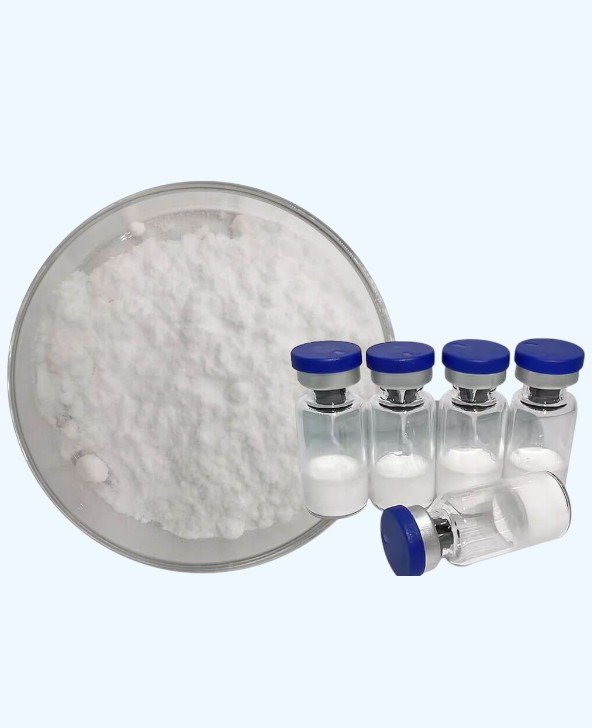




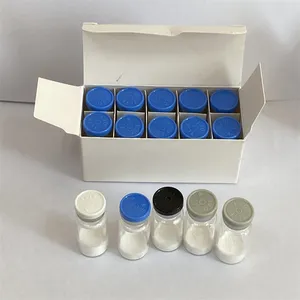

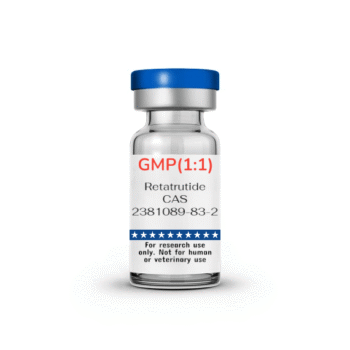
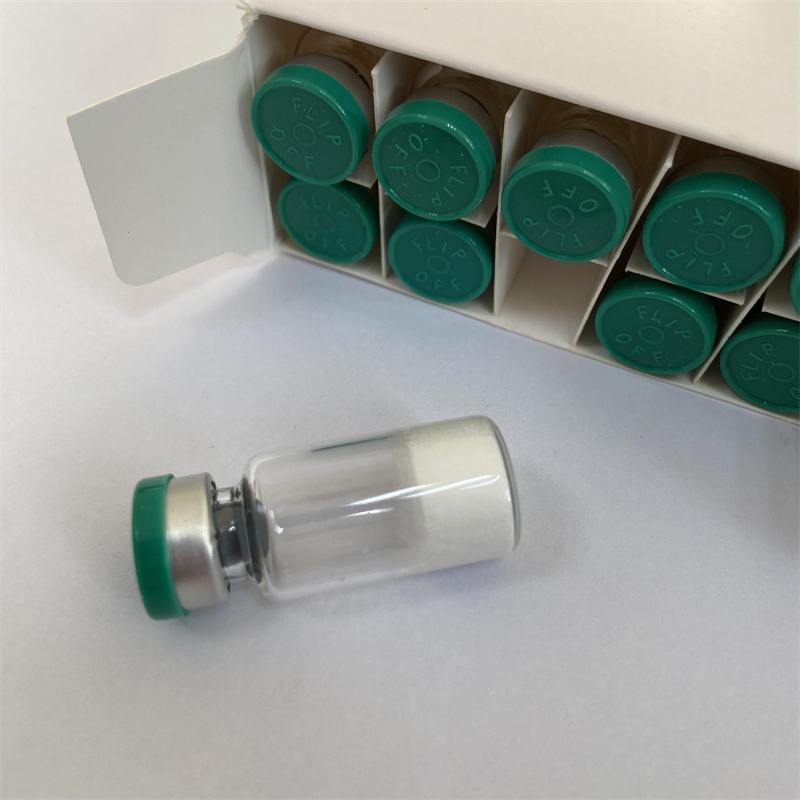

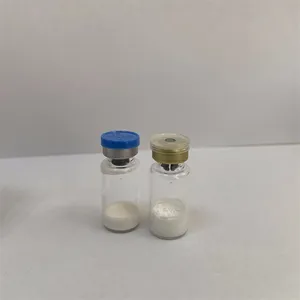
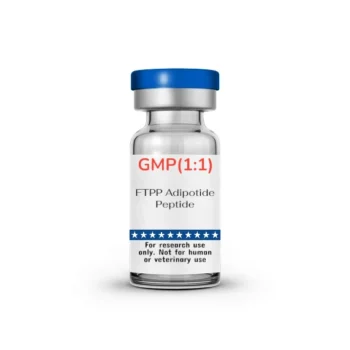
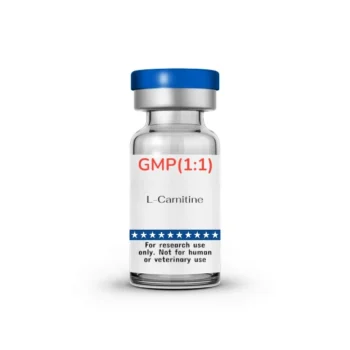
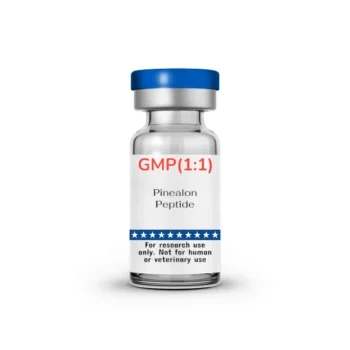


Reviews
There are no reviews yet.